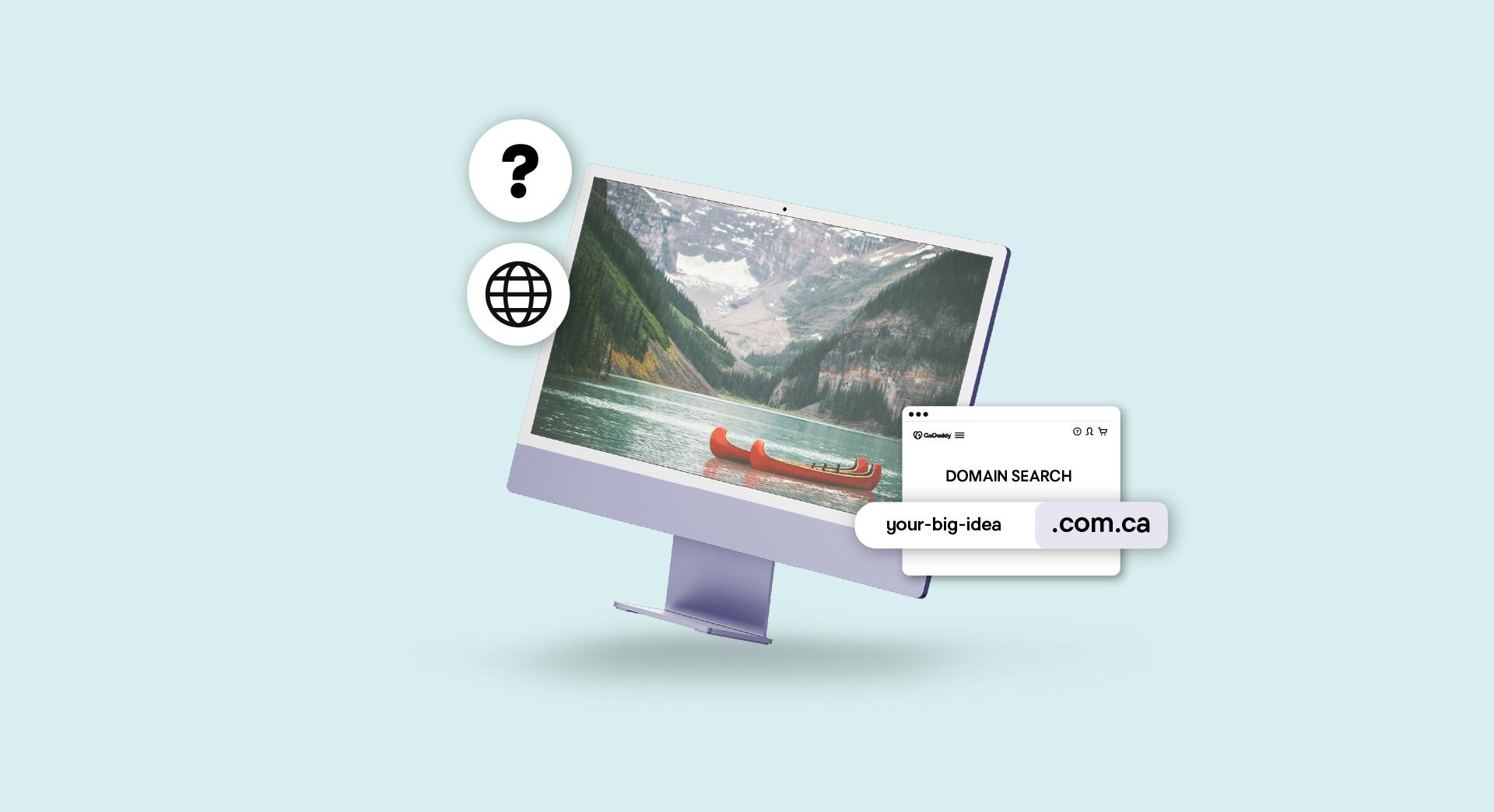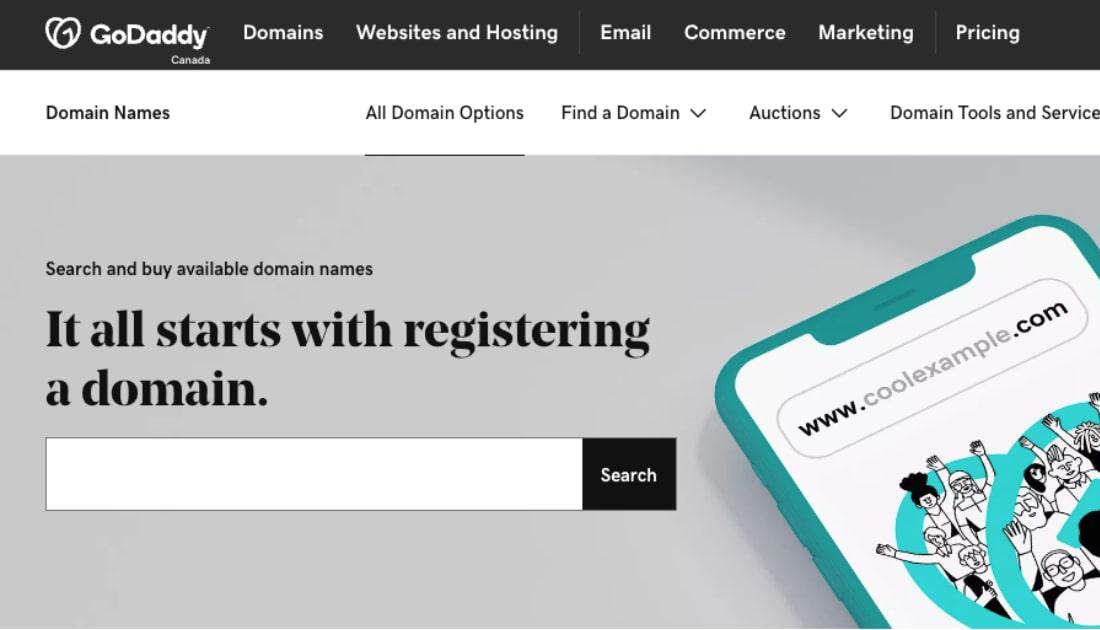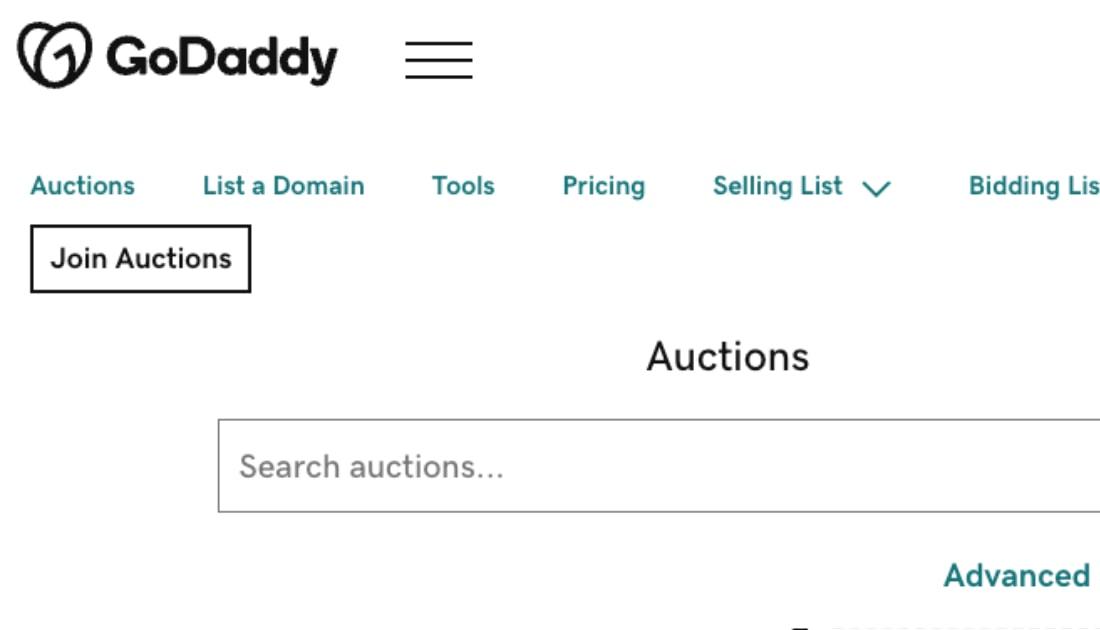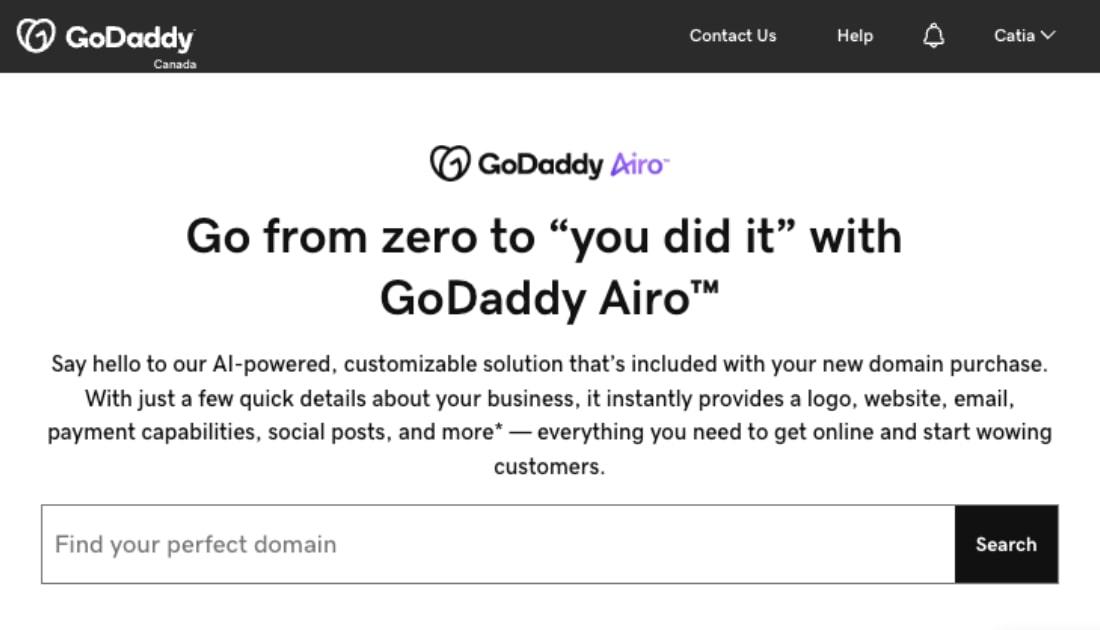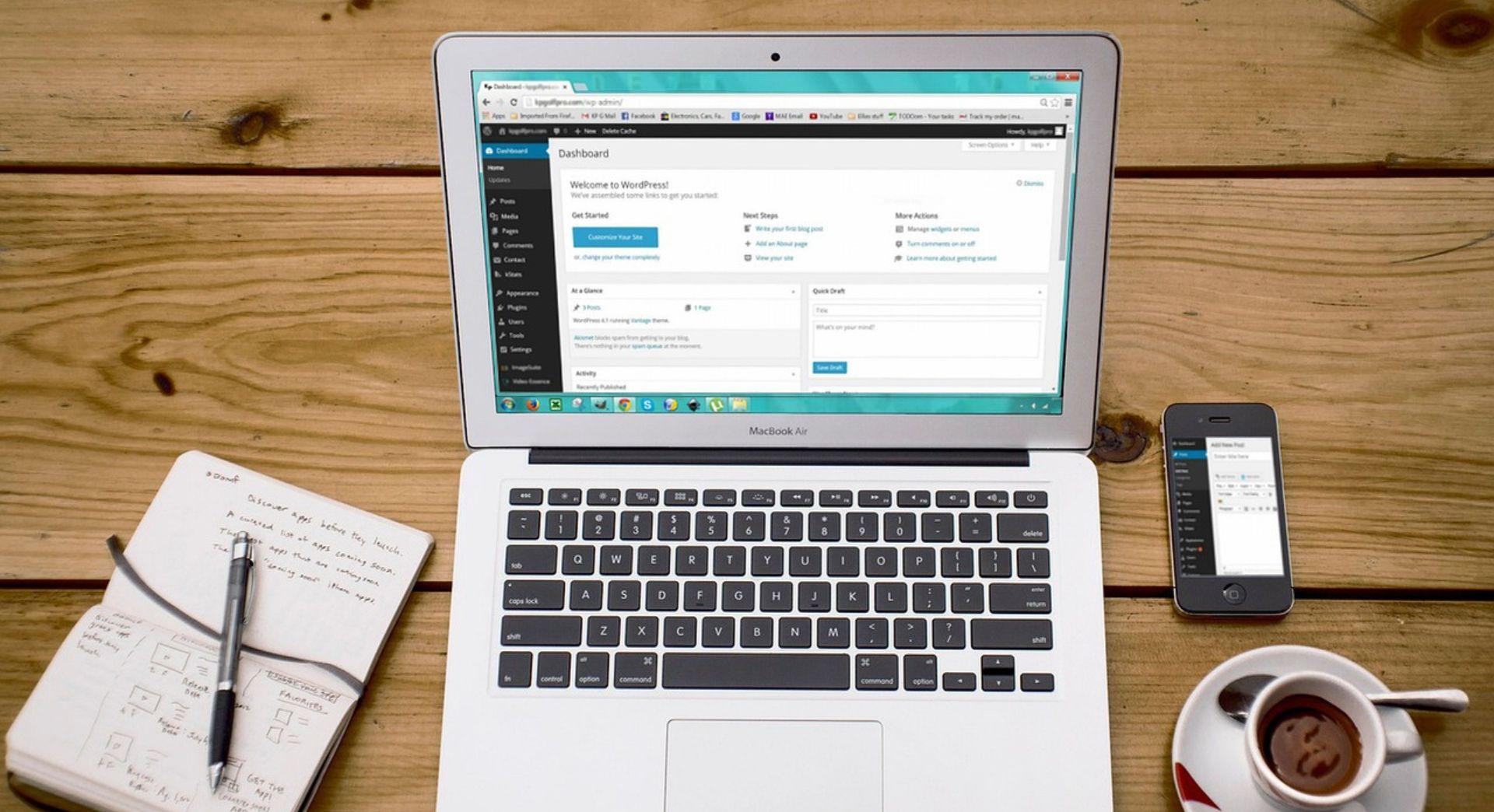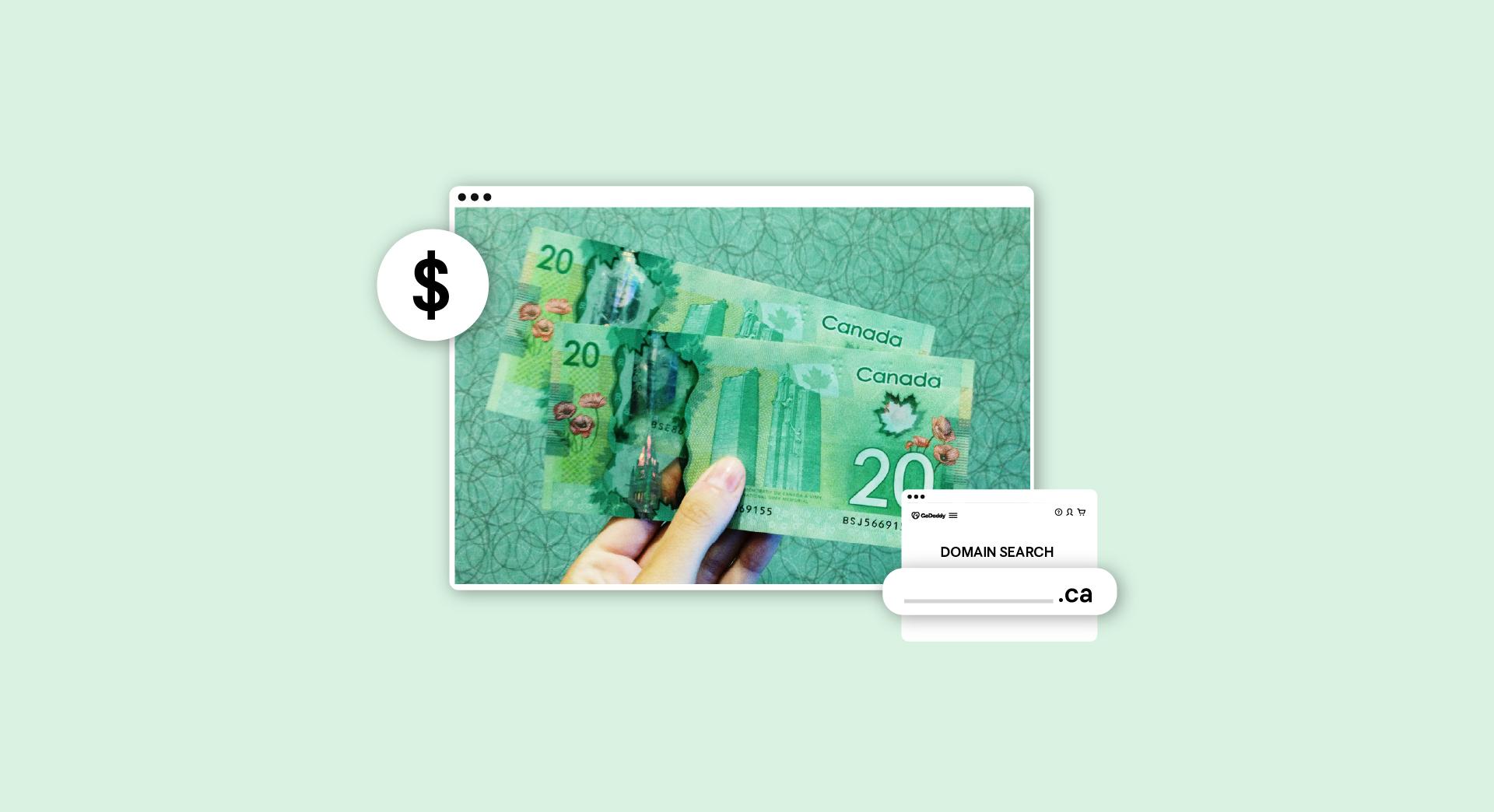As an entrepreneur, you know there’s a whole heck of a lot that goes into a name.
For starters, the name you come up with for your side hustle or startup is often the first impression that potential customers have of your business. Your business name gives people a sense of who you are and what your company is all about.
Your business’s domain name is just as important.
In our persistently online world, chances are that people are likely to come across your business first while cruising social media or trawling the web.
That means that, rather than walking into a store or office underneath a stylish marquee, your clients may first encounter your business beneath the emblazoned banner of — you guessed it — your website’s domain name.
It just makes sense to spend some time learning about buying a domain name that will work as hard for your Canadian business as you do.
Still trying to figure out where to start? Don’t worry — we’ve got you covered.
If you’re still not clear on domain names, check out this separate guide on what is a domain name, domain VS URL and other useful facts
Top 10 things to know about buying domain names in Canada
Unless you plan to avoid the internet altogether, you’ll want to register a unique domain name to use:
- As your unique space on the web
- To create a professional email address
- As the web address for your business website
- For a direct link to your social media page
- As an investment that, if managed properly, can make money
You’ve heard about branding, right? Branding is everything that goes into creating a public image for your business. Owning your own, one-of-a-kind domain name is right up there with creating a terrific logo and choosing business colors you use everywhere.
Related: 10 tips for choosing the perfect domain name

1. Let’s take it from the top: what exactly is a domain name?
While most folks out there probably have a general idea of what a domain name is, it’s worth laying out the details before diving too much deeper.
So — what exactly is a domain name, then?
A domain name is essentially the address people will type into the search bar of their web browser to find your site.
The domain name here, for example, is GoDaddy.com.
The domain name of my marketing services website (shameless plug incoming!) is TheMarketingGirl.com.
By punching these domain names into Safari, Chrome, or whatever your browser of choice might be, you’ll be taken directly to the business website.
2. How do I buy a domain name in Canada?
Buying a domain name here in Canada is no different than buying a domain name anywhere else in the world — that’s the beauty of the world wide web!
It’s a simple, two-step process:
- First, you need to search for an available name using a domain name search tool (GoDaddy’s got a fast one)
- Then you simply check out, paying an annual fee to a domain registrar (more on this later in this article)
Et voilà! You’ve got yourself a bona fide domain name on the global internet.
Uh oh. Has somebody already registered your domain name? The only domain name that perfectly says everything your business is and stands for?
Don’t panic yet.
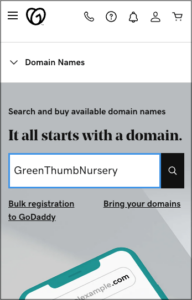
First, take a peek at the current status of your desired domain name by running a WhoIs check (again, GoDaddy has an excellent WhoIs service you can use for free).
This will show you the contact information for the person who currently owns the domain name you want and when their ownership rights are set to come up for renewal.
In cases where the domain owner has WhoIs privacy, only the registrar’s contact information will be shown.
Armed with this knowledge, you can reach out to the owner (or the registrar) to ask if they’d be willing to sell. You may be able to swoop in and grab the domain name if the owner lets it expire.
GoDaddy can also help you snag that domain with a broker service that specialises in the negotiation process. This takes the stress and hassle out of getting the domain you want in exchange for a fee you and the seller agree to.
3. Knowing your .ca from your .com domains
The first part of your domain name — the "GoDaddy” in "godaddy.com” to be precise — can be any combination of words or letters that you can come up with.
But what about the part on the other side of the dot?
That closing bit of a domain name is known as its extension. Like your domain name, the extension you choose can go a long way when it comes to helping potential clients identify what your business is all about.

For example:
- A .com extension typically indicates a commercial or business-related venture
- Domains ending with .org are regularly used by not-for-profit or community-driven ventures
- A .ca domain name lets people know they’re dealing with a Canadian business
- The .quebec extension is often used by Québécois hotels, restaurants and attractions
There are many more extensions out there, including many relatively newer choices like:
In fact, you have hundreds of options — scroll through all of them here.
But regardless of which one you go with, you can sleep soundly knowing that it simply comes down to a branding choice that doesn’t have any sort of an impact on search engine results — and that’s coming straight from Google itself.
4. What does a Canadian domain name cost?
As the official country-code domain of Canada, .ca is the most Canadian choice of all. It tells people at-a-glance that:
· You’re located right here in Canada
· Your business supports our economy
· All prices will be shown in Canadian dollars
· You collect and pay Canadian taxes
· There’ll be no border or customs issues
It’s no surprise then that Canadian shoppers are four times more likely to favour online retailers that have .ca web addresses.

For information on the .ca extension, there are a few better resources than the registrar that manages it: the Canadian Internet Registration Authority (CIRA).
Through CIRA, you can:
- Learn about the benefits of using the .ca extension
- See currently-registered .ca domain names that are up for sale by owner
- Browse soon-to-be-released .ca domain names
Note that CIRA doesn't actually act as a registrar or domain name seller. But they maintain a full list of certified registrars to help you when you’re ready to register your .ca domain.
GoDaddy is on CIRA's list of approved domain registrars.
While a currently-registered domain name can go for just about any price a seller lists, an unowned .ca domain will typically cost anywhere from $5-$20 to register for one year. After that, your annual cost may be in the $22 range.
Why pay money when can get a free domain, though?
Or for almost free, in this case! Right now, GoDaddy .ca domain names are available for as little as $0.01 when you register for 3 years or more. So go ahead — start planning the design for your .ca website now!
5. How do I permanently buy a domain name?

As the domain registration process stands, it’s not possible to purchase a domain name permanently. A person or entity cannot register a domain name forever or own it in perpetuity.
Instead, domain name registration is managed on a recurring annual basis. If you were to register it for one year and then forget to renew it, it would be held for 26 days and then released to auction.
GoDaddy sends multiple emails to alert domain owners during the 30 days prior and 30 days after any domain expiration.
Your best bet is to set your domain to auto-renew and keep your payment method up to date.
Some registrars will allow you to prepay your renewal fees for up to 10 years in advance, depending on the domain extension.
6. What’s the safest way to buy a domain name?
The first step to safely buying a domain name in Canada is to choose a reputable registrar.
There are a handful of household-name registrars with tens of millions of registrations under their belts that you can trust — GoDaddy being one of them.
Seek out customer reviews, testimonials and even personal recommendations before sharing your intended domain name with any registrar.
Shop around
Whatever domain name and extension you’ve settled with, don’t just sign up with the first registrar you happen to come across. Instead, shop around — get a sense of registration pricing, explore bundles, and keep an eye open for promotions. Here’s a comparison of the best domain registrars.
You can often register your domain name for next-to-nothing and get discounts on website builders, web hosting and security apps by searching. So take the time to be picky!
Editor's Note: If you choose GoDaddy as a registrar, your new domain includes GoDaddy Airo, an AI-powered solution that instantly creates your website, logo, social handles and more. All for the cost of your domain name.* TechRadar Pro calls Airo a "game-changer for small businesses."

Always register your domain in your own name
This is a relatively simple task and will ensure that you always have access to administrative privileges on the account — even if you and your web designer end up parting ways.
Remember that you can always change your mind
Be sure to do your homework before signing up with a registrar — but rest easy knowing that nothing is set in stone.
If you realize that you’re not quite the fan of your registrar that you thought you were, no problem. Transferring your domain name is as easy as requesting an authorization code for your unlocked domain name from your current registrar and sending it over to your new one.
7. Why buy a domain name?
There are several reasons to buy a domain name — here are a few of the most important ones:
To establish an online presence for your business. It’s not much of a stretch to say that if your business can’t be found online, for most people it simply does not exist.
Once you have a domain name, you can create a space where people can easily find and engage with your business — whether that’s a website or a social profile.

Free services. Domain name purchases often come with various perks vital to online businesses. Secure email boxes, privacy protection, round-the-clock customer support … suddenly, those annual renewal fees look like they’re working pretty hard for your business!
Digital sales. One of the biggest reasons to buy a domain name is because it opens the door to online sales and services. Even if you don’t start out selling online, you’re expanding your company’s reach and paving the way for future e-commerce sales. Sounds like a recipe for increased leads and sales to us!
Domain investing. Buying and selling domains for profit is big business for those willing to spend the time, money and effort mastering it. In 2022, NFTs.com sold for C$20,283,748. Learn more about this money-making business idea here.
Related: Where to find domains for sale or sell yours for profit
8. What are the most popular domain name extensions?
When it comes to which domain names are the most popular, you wouldn’t be far off in assuming it’s the ones you most commonly run into.
A couple of these we’ve already mentioned in the article earlier on, but some of the most popular domain name extensions in Canada include:
- .com: An extension denoting commercial or for-profit sites and the most popular top-level domain (TLD) on the internet.
- .ca: This country code top-level domain (ccTLD) can only be obtained by those who meet a Canadian presence requirement. It’s backed by research demonstrating that Canadians prefer to shop at and visit .ca sites.
- .org: This extension is typically affiliated with non-commercial entities, including not-for-profits, community causes, NGOs and more.
- .net: The .net extension was initially intended for use by internet service providers. Nowadays, though, it’s often a popular alternative to the .com domain for more tech-aligned, web-affiliated businesses.
Since 2013, the Internet Corporation for Assigned Names and Numbers (ICANN) has been rolling out hundreds of new, descriptive domain extensions:

- Geographic extensions such as .amsterdam, .berlin and .istanbul
- Restaurant-related domains including .menu, .pizza and .beer
- Sport-related extensions like .bike, .fish, .golf and .futbol
- Lifestyle domains such as .club, .fashion and .wedding
- Industry-related domains including .realestate, .law and .insure
ICANN is the official body that oversees the global domain name system (DNS). Its goal is to give individuals and businesses greater choice by offering domain extensions that describe a wider range of websites. You can scroll through the whole list here.
9. Registering vs. buying a domain name
If you’ve gotten this far, you might wonder at the distinction between the terms “registering” and “buying” when it comes to this whole domain process.
Ultimately, the difference between registering and buying a domain is not much more than a linguistic one.
When you register a domain name, you’re essentially buying it (or, more accurately, leasing it) for a limited time — typically for one to three years, as we’ve established above.
In choosing and paying for a domain name, the registrar you’ve decided to work with essentially signs it over to you (and only you) as its owner for that agreed-upon period of time.

Once that time has passed, the domain name will come up for registration again.
From there, you must decide to renew it or let the registration expire — at which point, the domain name would be up for purchase on the open market again.
Any domains you own but aren’t currently using for a website can earn their keep with something called Cash Parking.
10. What is an SSL certificate?
As you’re going through registering your domain, you might wonder, “Wait — what about those little padlocks that pop up when I visit certain websites? How do I get one of those?”
That’s honestly a great question. A Secure Sockets Layer (or SSL) certificate is a digital certificate the creates a secure, private connection between your website and anyone who visits it.

The padlock lets people know that it’s safe to submit private information to that website.
This technology acts like an online passport, authenticating the identity of a website and encrypting information sent back to its server. When a person wants to send confidential details like their credit card number to a site, the user’s browser works to access the server’s SSL certificate, establishing a secure digital connection for the information exchange.
What precise details are contained within an SSL certificate? You’ll find four critical pieces of information:
- The SSL certificate holder’s name
- The serial number and expiration date of the certificate
- The digital signature of the authority who issued the certificate
- A copy of the certificate holder’s public key
GoDaddy has several SSL certificate packages including certificates for businesses of all sizes, not to mention a managed option for those smaller operations that might not have a dedicated IT team member on staff.
The final word on buying domain names in Canada
We’ve spent a lot of time describing the intricacies of domain names but the process of buying one isn’t complex.
In fact, you can do it right now
Check to see if the domain you want is available now
There are a few key things to remember:
Find the right domain name. Remember, choose a domain name that either mirrors your business’s actual name (one less thing for your customers to remember!) or that connects thoughtfully to your company, product/service offering or overarching values.
Editor's Note: Easily generate brilliant ideas using our domain name generator
Choose an extension that aligns with your business. For example, if you’re looking to open an online retail boutique, choosing the .org extension as your web address could set confusing expectations for your customers. In this example, .com or .shop would be a far better choice. Be sure to choose an extension that’s right for your venture.
Do your homework when choosing a registrar. When sorting out which registrar to partner with, take a moment to ensure they’re a trustworthy collaborator — it’s your own business and hard work on the line, after all! Then, look up some reviews and find a registrar that will give you some extra bang for your buck in customer support and bundled services.
Don’t stress too much about it all. If you find a registrar a few weeks or months down the line that you feel would meet your needs better, all you’re likely to be out is a few bucks — switching is a relatively painless process.
Follow these steps, and you’ll be set up for digital sales, service and success.
Oh — and of course, welcome to the online neighbourhood! We can’t wait to see how your business looks online.
Domain name FAQs
Looking for quick answers to some frequently asked domain name questions? We’ve got you covered, right here.
How do I permanently buy a domain name?
We touch on this in more detail above, but unfortunately, for those who feel like they’ve found their forever URL, you can’t purchase a domain name permanently.
The closest you can get to perpetual URL ownership is to change your domain account settings to auto-renew and then ensure you keep your payment method up to date.
Some domain registrars will also allow you to prepay your renewal fees as far as 10 years in advance. So, if a decade feels like it’s close enough to “forever” for you, that might be just the answer you’re after.
How do I buy a domain name in Canada?
Buying a domain name in Canada is simple. First, use a domain name search tool to find an available name (GoDaddy can help you out there).
Once you’ve got your domain name chosen, all you need to do is pay your annual fee to the registrar of your choice, check out and you’re done!
Is somebody already using the name you want? See who it is by running a WhoIs check (again, GoDaddy is here to help) and you can reach out to the owner to see if they’re willing to sell.
GoDaddy even offers a broker service that specialises in this sort of negotiation to help take the stress out of the process.
How much does it cost to buy a domain name in Canada?
The price of a domain name can vary, but as a business located right here in Canada, you’ve got an exclusive, cost-effective option available to you in the form of a .ca domain name.
Typically, an unowned .ca domain will cost around C$22.00 to register per year. When you register through GoDaddy, though, .ca domain names are available for as little as C$0.01 for the first 12 months when you register for three years.
Not a bad deal for getting your brand out there on the worldwide web!
What is the safest way to buy a domain name?
First, choose a reputable registrar. Shop around to get a sense of registration pricing and compare promotions – particularly well before sharing your desired domain name with any registrar.
Once you choose a registrar, be sure to register your domain in your own name. If you’ve contracted a web designer or developer to create a website, they may offer to register your domain for you. Ask them to register it in your name so that you always have administrative privileges on the account, regardless of collaborative partners who may come and go.
Read more about the best domain registrars here.
What are the benefits of buying a domain name?
There are all sorts of reasons a person might buy a domain name, including:
- To establish an online presence for a business
- Getting access to included services like email boxes and 24/7 customer support
- Access to e-commerce service platforms
- As a speculative investment in domains they feel might one day hold significant value
What are the most popular domain name extensions?
The most popular domain name extensions in Canada include:
- .com
- .ca
- .org
- .net
What is the difference between registering and buying a domain name?
When it comes down to it, these two terms really mean the same thing. When you register a domain name, you’re basically buying it for a limited time – or leasing it, technically. Then, once that time has passed, your domain name will come up for registration renewal again. If you renew it, the domain continues to be yours exclusively. If you fail to renew it, the domain will be made available to the public, after a grace period during which you can reclaim it.
*Premium features like business email and e-commerce available for an added cost.
